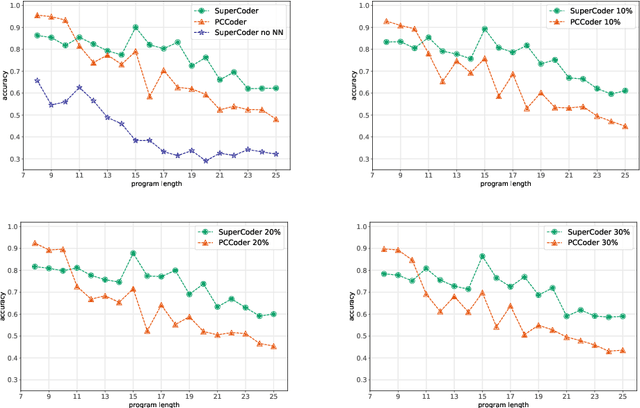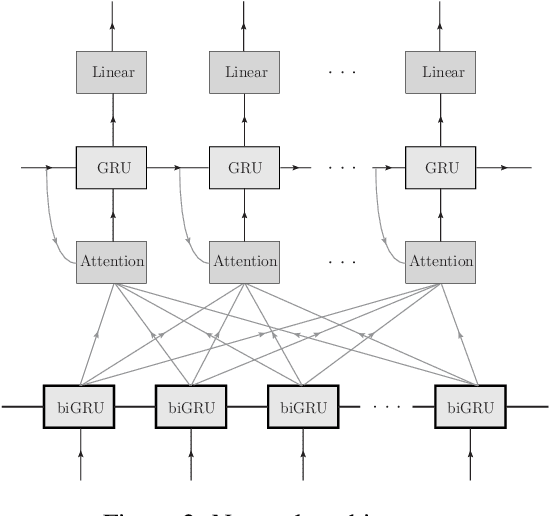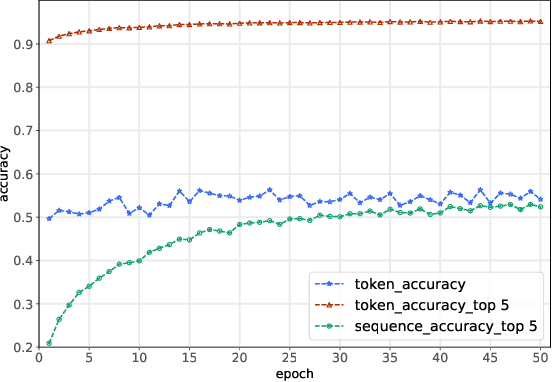SuperCoder: Program Learning Under Noisy Conditions From Superposition of States
Paper and Code
Dec 07, 2020



We propose a new method of program learning in a Domain Specific Language (DSL) which is based on gradient descent with no direct search. The first component of our method is a probabilistic representation of the DSL variables. At each timestep in the program sequence, different DSL functions are applied on the DSL variables with a certain probability, leading to different possible outcomes. Rather than handling all these outputs separately, whose number grows exponentially with each timestep, we collect them into a superposition of variables which captures the information in a single, but fuzzy, state. This state is to be contrasted at the final timestep with the ground-truth output, through a loss function. The second component of our method is an attention-based recurrent neural network, which provides an appropriate initialization point for the gradient descent that optimizes the probabilistic representation. The method we have developed surpasses the state-of-the-art for synthesising long programs and is able to learn programs under noise.
 Add to Chrome
Add to Chrome Add to Firefox
Add to Firefox Add to Edge
Add to Edge